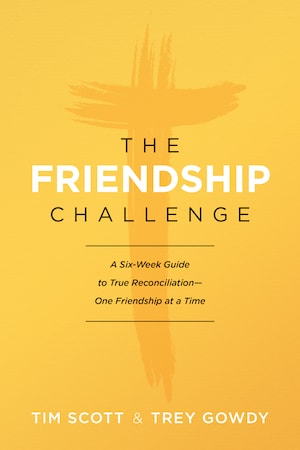I’ve always been impressed by what I call the “aftermath mentality.” As Americans, we are so good at treating each other as individuals and family after a crisis. Take, for example, the 2015 shooting in Charleston, South Carolina. If you know anything about the historic city of Charleston, it isn’t difficult to imagine why Dylann Roof chose the Emanuel African Methodist Episcopal Church as his target. Known as Mother Emanuel because it birthed other AME churches, the church has endured more than its share of tragedies since its founding in 1816. Back then, all churches in Charleston were required to have a majority white membership, and blacks were allowed to meet for church services only during the day. African Americans were routinely harassed and forbidden to learn to read. Denmark Vesey, one of the church’s founders, was implicated in a slave revolt and was later executed after a secret trial.
Six years after the church’s founding, the original church building was burned to the ground by whites who were angry about black progress. The black congregation continued to meet in secret until the end of the Civil War, and then they rebuilt Mother Emanuel. In 1969, Coretta Scott King led a march from Mother Emanuel during the infamous hospital workers’ strike. Throughout the church’s history, great speakers like Booker T. Washington, Dr. Martin Luther King Jr., and the Reverend Wyatt Tee Walker of the Southern Christian Leadership Conference often chose to speak at Mother Emanuel because of its historic importance. Mother Emanuel is a place of significance, history, and influence.
Perhaps a tougher question to answer is this: What led a young man to believe that starting a race war was possible in 2015, fifty years after the passage of the Civil Rights Act? The question is difficult, not because we don’t know the answer, but because of what the answer says about where we stand as a nation.
Dylann Roof saw the cracks in the foundation of our society, where people had begun to retreat into their own echo chambers, removing themselves from the melting pot into individual bowls based on “identity.” Republicans, you watch these channels and read these news outlets over here. Democrats, your channels and news outlets are on the opposite side of the dial. The tragic deaths of more than a few black men, from Trayvon Martin to Michael Brown to Walter Scott, have inflamed racial tensions to levels not seen in decades. We have divided ourselves by religion, race, and relativity, with statements such as “That may be your truth, but it’s not my truth.” We are divided by gender and geography, by ideology, identity, and every idiosyncrasy we can imagine.
And yet, through the tragedy at Emanuel, there came a glimpse of the future we must choose. The families of the Emanuel Nine called for peace and unity. On national television, they forgave the man who killed their mothers, fathers, brothers, and sisters. Because of them, Charleston came together in a way not seen before in my lifetime.
Even between people with no previous relationship, this racially motivated atrocity actually bridged a racial divide. Love is always stronger than hate, and God’s love is stronger than anything. If we want to move forward, we must anchor ourselves in God’s powerful, transformative, and genuine love.
Adapted from Unified: How Our Unlikely Friendship Gives Us Hope for a Divided Country by Senator Tim Scott and Congressman Trey Gowdy, from Tyndale House Publishers.
Consider using this related resource from Senator Scott and former Congressman Gowdy as a way to open conversations on race and diversity at your church:
The Friendship Challenge can help you get the conversation started about bridging the racial divide in your community.
- The Friendship Challenge is a six-week guide, helping individuals and groups promote racial reconciliation in their communities—one person at a time, one friendship at a time.
- The first week prepares individuals and groups to reach out to a person on the other side of the racial divide, whether it is a person at work or in a nearby church.
- The next five weeks take that small group through a study that fosters true reconciliation—the kind of reconciliation Jesus showed in his own life and death.
The Friendship Challenge study is available online, through retailers, or through the publisher at Tyndale.com.
Tyndale | The Friendship Challenge
Posted on August 11, 2020
TIM SCOTT is a successful small businessman and US senator from South Carolina. He is the first African American to be elected to both the US House and US Senate since Reconstruction.
More from Tim





